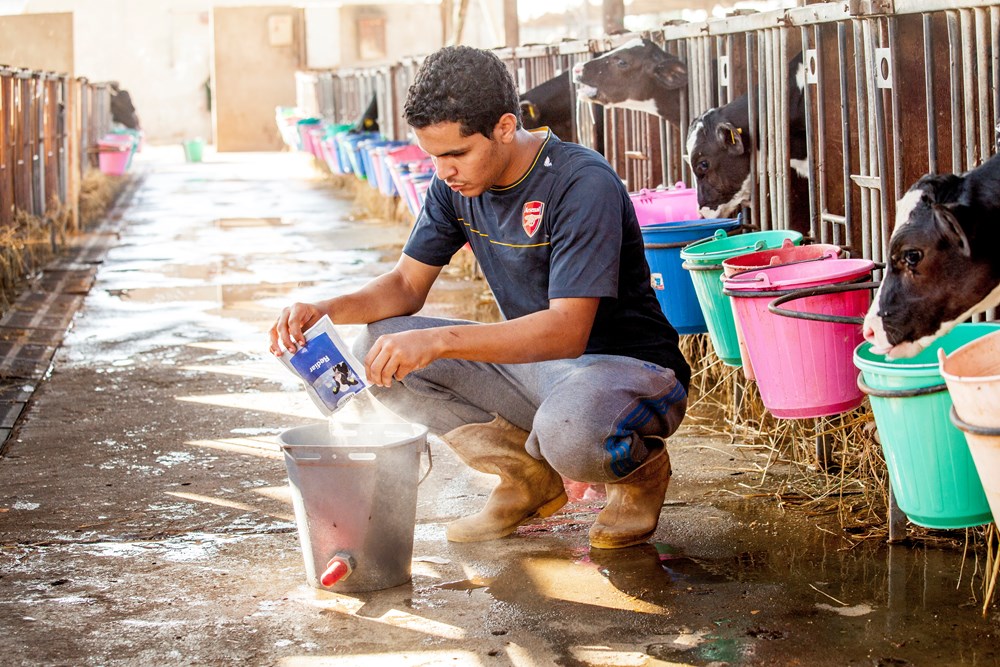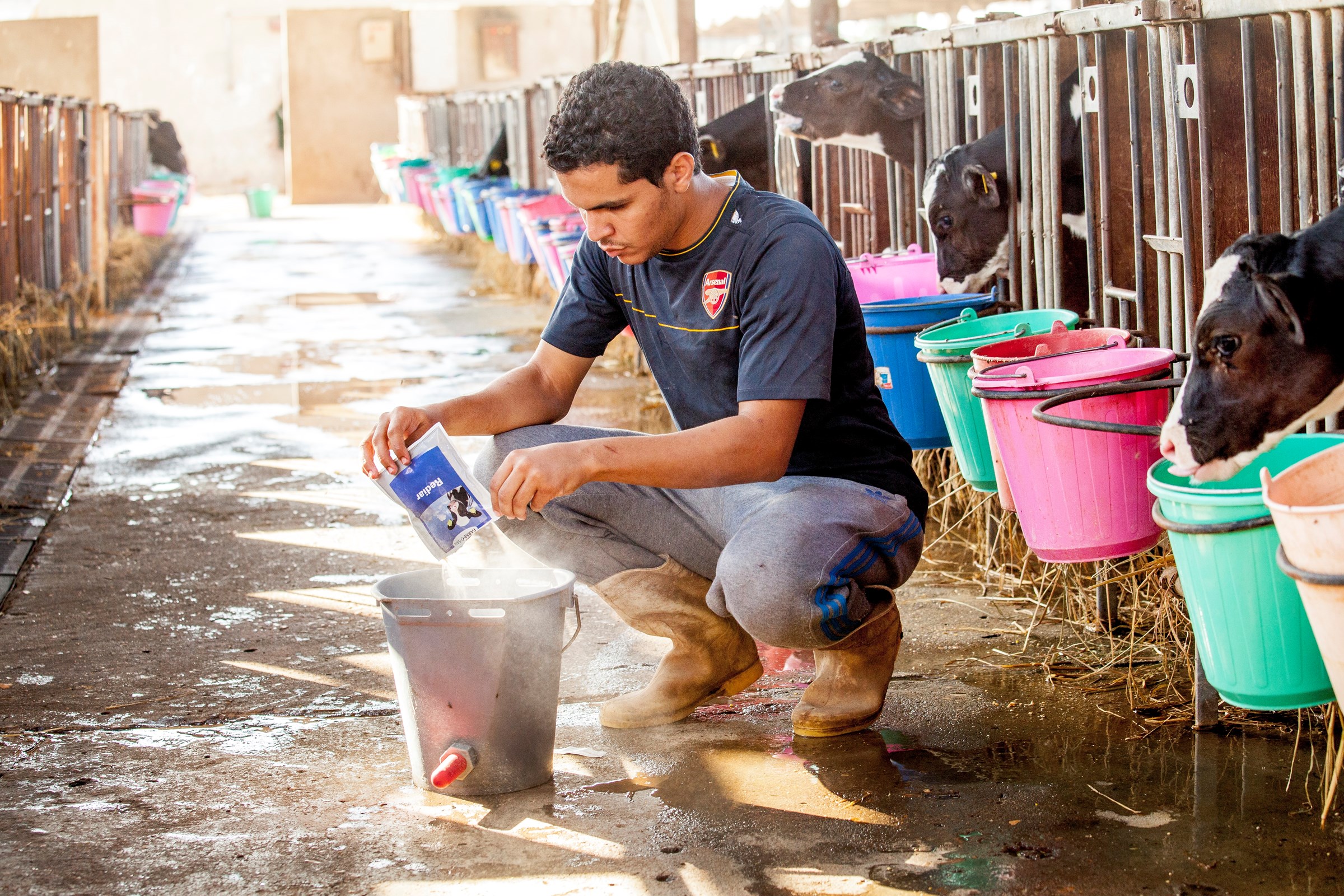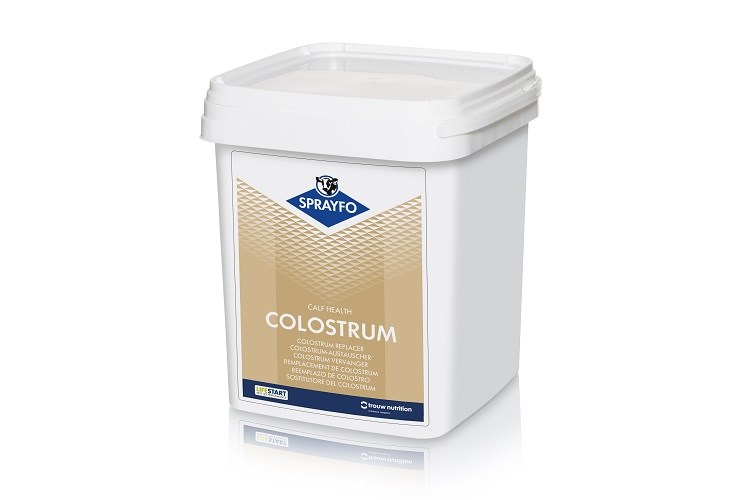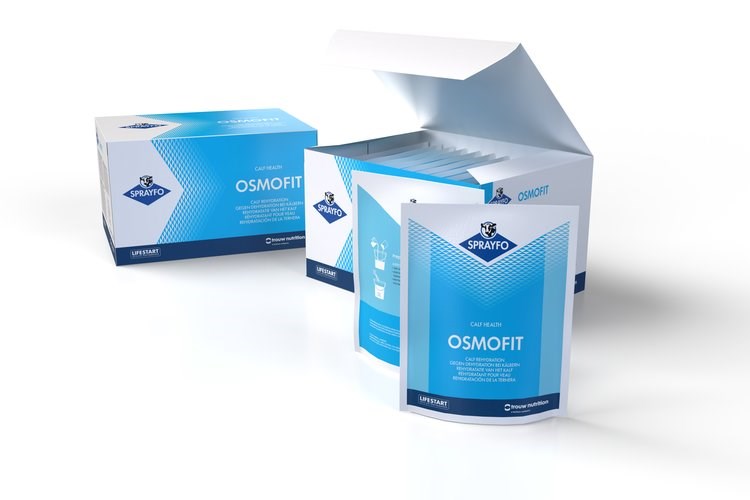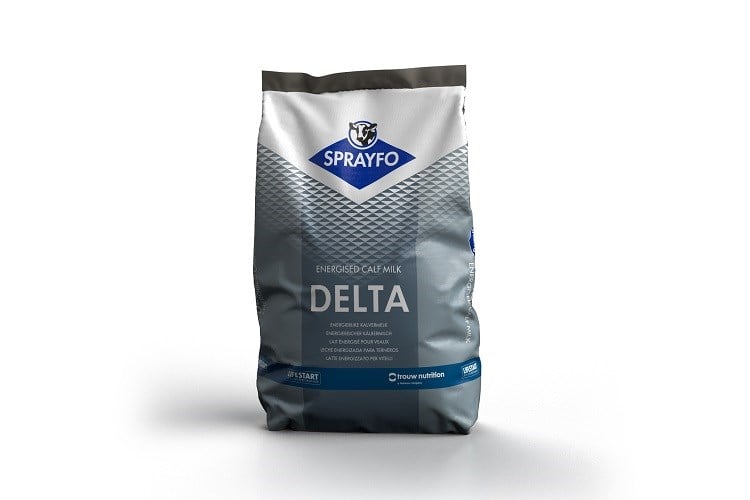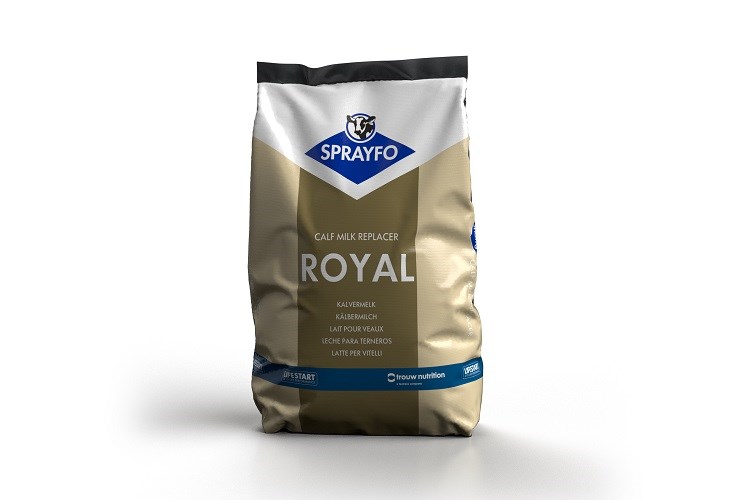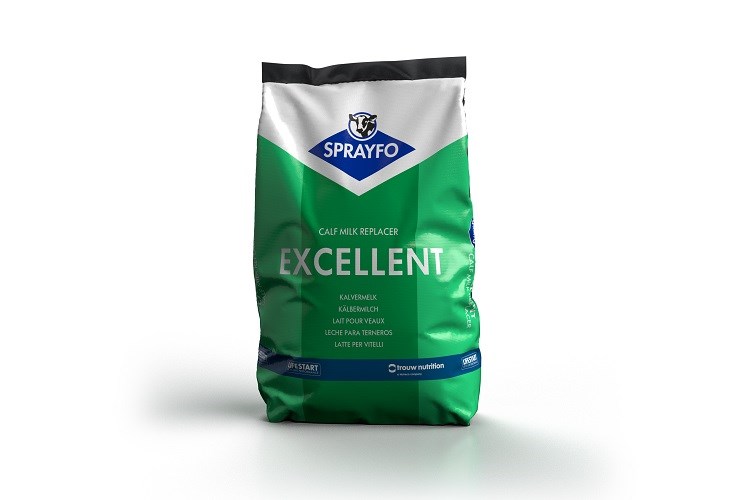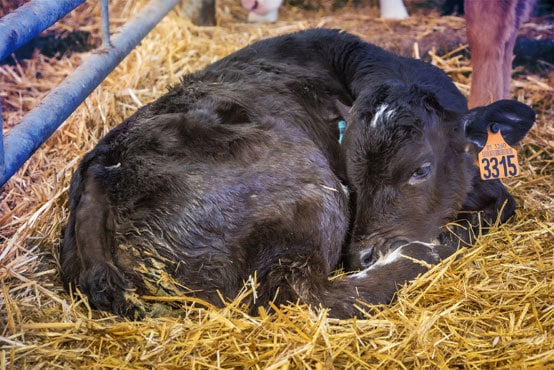
Calf scours is a major threat for young dairy calves. More than half of all neonatal calf deaths are related to diarrhoea. Various organisms can be involved in neonatal scours with cryptosporidium parvum being the most common one.
Several nutritional factors such as poor quality calf milk replacers and poor colostrum management can also cause or contribute to neonatal calf diarrhoea. Scours results in dehydration which can kill a calf.
Dehydration as a result of calf scours
Calf diarrhoea causes an increase in loss of water and electrolytes and a reduction of milk intake. Ultimately, neonatal calf scours results in dehydration and a negative energy balance. Dehydration is expressed as the percentage of body weight lost in the form of water.
Signs of dehydration
It is important to recognize calf scours and the signs of dehydration that come with it as early as possible. Therefore, check your calves twice daily, and when signs of calf scours and/or dehydration are being noticed, immediately provide an electrolyte solution. This will increase the chances the calf will recover rapidly.
How to deal with dehydration as a result of calf scours?
Most cases of calf scours are self-limiting: the calf will clear the organism from its system as long as it is being rehydrated properly. Calves with diarrhoea should be offered a product that corrects dehydration and restores their energy balance. Once the first calf in a group starts scouring, others may follow. If this happens, it makes sense to provide an electrolyte solution to the entire group.
Cryptosporidium parvum problems in dairy calves are hard to tackle
Most causes of neonatal scours in calves respond very well to a standard prevention protocol for diarrhoea. Cryptosporidium parvum, which is nowadays the most frequently isolated bug in many countries is different. Oocysts of cryptospopridium are very resistant to cleaning and disinfection procedures, therefore, a Cryptosporidium parvum problem requires a special approach.
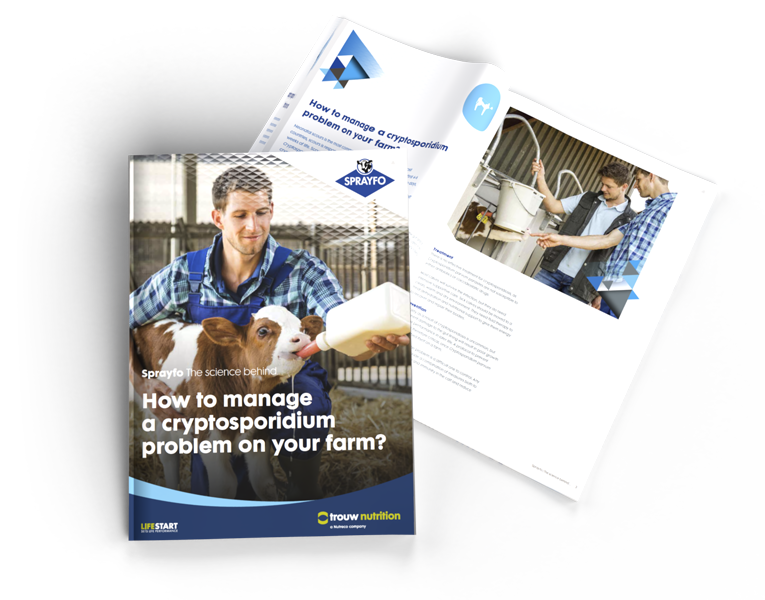
How to manage a cryptosporidium problem on your farm?
To understand the differences between the general approach presented below, to prevent neonatal scours, and the approach required to deal with a Cryptosporidium parvum problem, more information about causes, clinical signs, diagnosis, treatment and prevention of Cryptosporidium parvum is available.
Register once and download all you need
You can access all of our documentation such as the science behind Sprayfo and LifeStart research documents, Sprayfo technical bulletins about various calf diseases and technical product data sheets or feeding schedules.
Sprayfo protocol for calf scours
 Feed at least 4 litres of good quality colostrum
Feed at least 4 litres of good quality colostrum
Feed at least 4 litres of good quality colostrum immediately after the calf is born, followed by a second colostrum feeding of at least 2 litres 8-12 hours later.
 Feed dairy calves twice or three times daily
Feed dairy calves twice or three times daily
Feed a high quality calf milk replacer at a feeding temperature of 39-41°C. Make sure each feeding takes place at the same time of the day and feed dairy calves twice or three times daily. Healthy calves shed low amounts of infectious organisms in their faeces. Because this amount goes up if the calf gets older, feed calves in order of age, starting with the young ones first.
 House calves individually during the first 2 weeks
House calves individually during the first 2 weeks
Even apparently healthy calves can be a source of infection to other calves. Therefore, house calves individually during the first 2 weeks of their life. Use an “all in-all-out” system and disinfect the calf pens between batches of calves . Ensure proper ventilation.
 House a sick calf separately
House a sick calf separately
House a sick calf separately from the healthy calves to avoid spreading of diarrhoea to other calves within the herd
